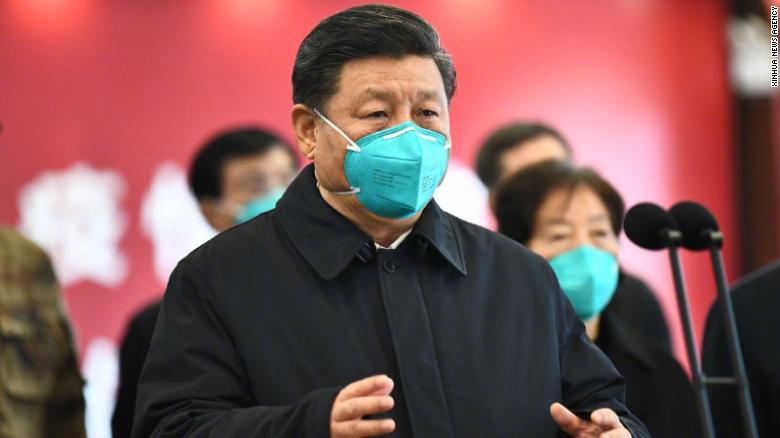
Persconferentie v internationale #WHO-expertenteam in #Wuhan gaat beginnen, met ruim uur vertraging. Onder meer hier te volgen:
Sprekers persconferentie:
- Peter Ben Embarek, teamleader WHO expert team
- Marion Koopmans, team leader molecular and epidemiological research group, Erasmus MC
- Liang Wannian, China National Health Commission, Tsinghua University
- Peter Ben Embarek, teamleader WHO expert team
- Marion Koopmans, team leader molecular and epidemiological research group, Erasmus MC
- Liang Wannian, China National Health Commission, Tsinghua University
Liang Wannian: Sars-cov-2 may have originated from zoonitic transmission but reservoir host animal remains to be determined. Viruses found in bats and pangolin are not sufficiently similar to Sars-cov-2 for those animals to serve as progenitors
LW: several cases with exposure to Huanan market have identical genomes (--> cluster). But sequenced data also show diversity of viruses, indicates chain of transmission beyond market
LW: substantial transmission was happening in #Wuhan in December 2019, most cases in second half of the month. Many cases at Huanan market, but also elsewhere in Wuhan. Not possible on basis of current information to say how sars-cov-2 was introduced at Huanan market.
LW: retrospective testing, analysis at pharmacies, research on mortality causes and reviewed blood tests in 2 months before December 2019 show no clear evidence of occurence of clinical cases of Sars-cov-2 in #Wuhan in those 2 months
Peter Ben Embarek: We can agree that we have found evidence of wider circulation of the virus in December. It was not just a cluster outbreak at the #Huanan market, but the virus also circulated outside the market.
PEB: All the research continues to point to natural reservoir of this virus and similar viruses in bat population.
PEB: #Huanan market was dealing primarily with frozen product and seafood, but there were also vendors selling products from farmed wild animals. Joint team has identified these vendors, their suppliers and farms, from different parts of the country, and some imported of course.
PEB: large amount of testing for Sars-Cov-2 in many different animal species in different provinces --> not possible to pinpoint any animal as potential reservoir. Currently and in 2019 doesn’t look like there was widespread circulation of the virus in any species in the country.
PEB:
WHO worked with 4 hypotheses (to decide on future studies)
1 direct zoonotic spillover
2 intermediary species
3 food chain (frozen product)
4 laboratory related incident
--> nr 2 is most likely, nr 3 + 1 are possible, nr 4 is extremely unlikely
WHO worked with 4 hypotheses (to decide on future studies)
1 direct zoonotic spillover
2 intermediary species
3 food chain (frozen product)
4 laboratory related incident
--> nr 2 is most likely, nr 3 + 1 are possible, nr 4 is extremely unlikely
Repeat: #WHO team leader Peter Ben Embarek says hypothesis of laboratory related incident is 'extremely unlikely to explain introduction of virus into human population'
PEB: suggestions for future research
Research blood samples from China + countries with early cases
Retest old samples with new methods
Re-explore early cases
More sampling of bats in China + neighbouring countries
Research on cold chain
Research on source of products at market
Research blood samples from China + countries with early cases
Retest old samples with new methods
Re-explore early cases
More sampling of bats in China + neighbouring countries
Research on cold chain
Research on source of products at market
Possible passing from original animal species all the way to Huanan market could have taken a long and convoluted way including crossing across borders. So we have to follow all the leads.
Q&A has started, Peter Ben Embarek in response to CGTN: In terms of time and place what we know is that one of first cases had onset of symptoms in first two weeks of December, so was infected at start of December or end of November
PEB on why #WHO thinks #laboratory hypothesis is extremely unlikely:
- lab accidents happen, but are extremely rare
- no research on this virus in labs
- health monitoring program for staff didn't reveal anything
- state of WIV lab: very unlikely that anything could escape
- lab accidents happen, but are extremely rare
- no research on this virus in labs
- health monitoring program for staff didn't reveal anything
- state of WIV lab: very unlikely that anything could escape
Liang Wannian on number of tests in China on animals:
11000 blood samples and 12000 + later 26800 PCR-samples of domestic animals tested: all negative
1914 blood samples and 50.000 PCR-sample of wild animals tested: all negative
11000 blood samples and 12000 + later 26800 PCR-samples of domestic animals tested: all negative
1914 blood samples and 50.000 PCR-sample of wild animals tested: all negative
#WHO press conference in #Wuhan has ended: lasted 2:47 hours but leaves us -as expected- with more questions than answers. Peter Ben Embarek: 'It's not easy to come up with answers after just a few weeks.... we have to continue to connect the dots.'
• • •
Missing some Tweet in this thread? You can try to
force a refresh





